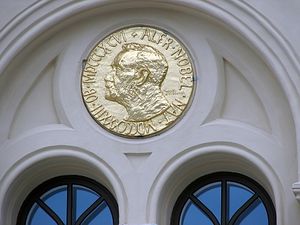In 2012, Chinese author Mo Yan became the first Chinese national to win a Nobel prize – aside from dissident Liu Xiaobo*, winner of the 2010 Peace Prize, who is in prison. Liu’s award was criticized as a foreign attempt to sow discord in China, while Mo’s victory was widely celebrated. But it has long been a source of puzzlement (and frustration) for China’s leaders that, though their emigres notched many a victory on behalf of other countries, no scientist holding Chinese citizenship had ever received one of the world’s most well-known awards for scientific achievement.
Until today, that is.
On October 5, the Nobel Assembly announced that Chinese national Tu Youyou had been awarded the Nobel Prize in Physiology or Medicine. Tu’s award is an acknowledgement of her discovery of Artemisinin, a drug that helps reduce the mortality rate of malaria. She shares the 2015 prize with William C. Campbell and Satoshi Omura, whose separate research efforts led to the discovery of a drug that helps treat parasitic infections.
As the Nobel Assembly press release put it:
These two discoveries have provided humankind with powerful new means to combat these debilitating diseases that affect hundreds of millions of people annually. The consequences in terms of improved human health and reduced suffering are immeasurable.
Artemisinin, the drug Tu discovered, is now used around the world to treat malaria. “When used in combination therapy, it is estimated to reduce mortality from malaria by more than 20 percent overall and by more than 30 percent in children,” the Nobel Assembly notes. “For Africa alone, this means that more than 100,000 lives are saved each year.”
The press release outlines how Tu combined Chinese traditional herbal medicine with modern-day science to extract “a new class of antimalarial agents that rapidly kill the malaria parasites at an early stage of their development.” The new drug was discovered after Tu’s research into herbal remedies for treating malaria.
According to the release, Tu was helped by China’s “ancient literature” on herbal remedies. But the chairman of the Nobel Committee for Physiology or Medicine, Juleen R. Zierath, also stressed the modern aspects of her research in an interview with Xinhua. “[T]here was a lot of modern chemistry, bio-chemistry attached to this to bring forward this new drug,” she said, saying it “was really critical” that Tu was able to identify the active ingredient in a plant extract. Another team of Chinese researchers is currently trying to create a synthetic version of the drug, which will make it easier and cheaper to produce.
Tu’s victory is the perfect showcase for Beijing, which itself wants to fuse traditional Chinese culture with modern relevance. Premier Li Keqiang was quick to pick up on the synergy between Tu’s accomplish and Beijing’s own hopes. In his congratulatory letter, Li noted that “Tu’s winning the prize signifies China’s prosperity and progress in scientific and technological field, marks a great contribution of traditional Chinese medicine to the cause of human health, and showcases China’s growing strengths and rising international standing.”
Tu herself graduated from Beijing Medical College (today known at the Peking University Health Science Center) in 1955, according to Xinhua. At 85 years old, she is currently a chief researcher and tenured professor at the China Academy of Chinese Medical Sciences in Beijing. However, she is not a member of the prestigious Chinese Academy of Sciences, an oversight that caused reflection from People’s Daily on Wednesday.
*A previous version of this piece misspelled Liu Xiaobo’s name.

































